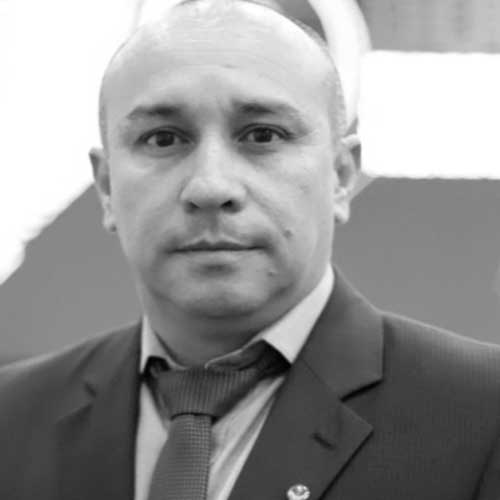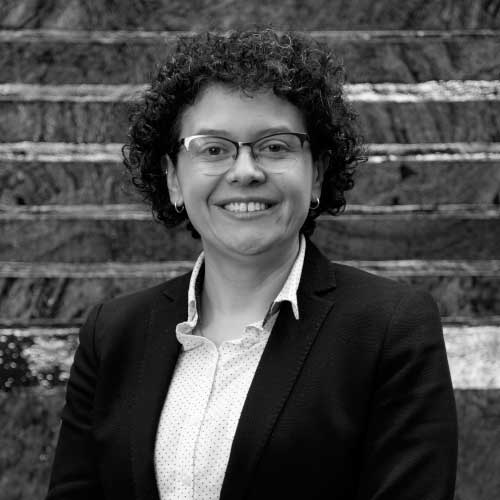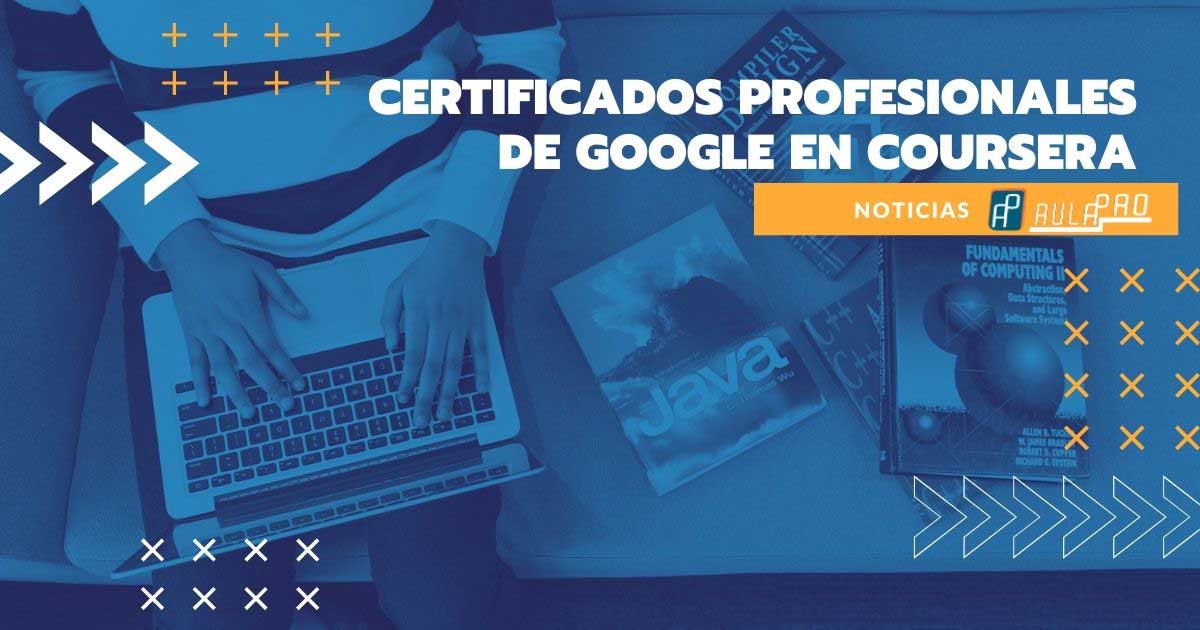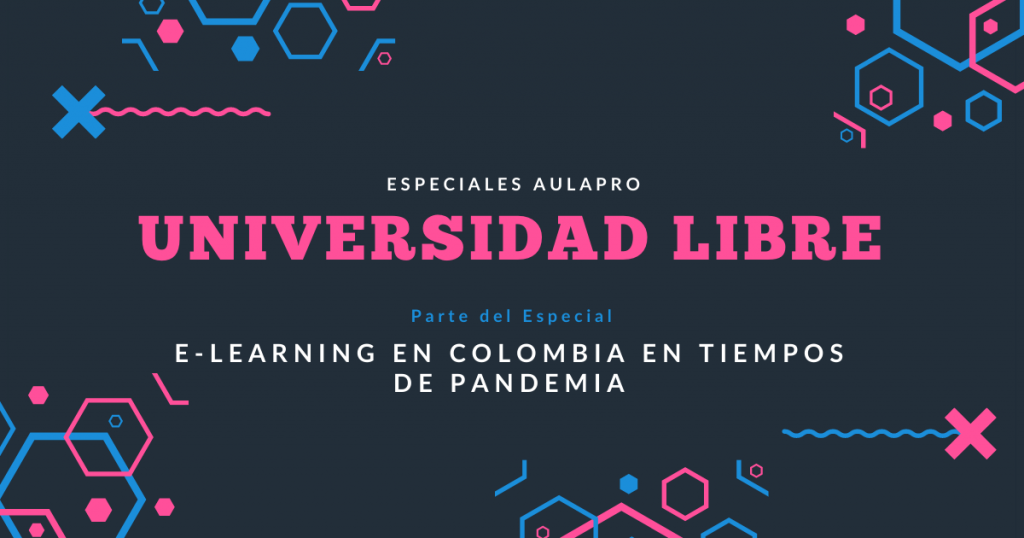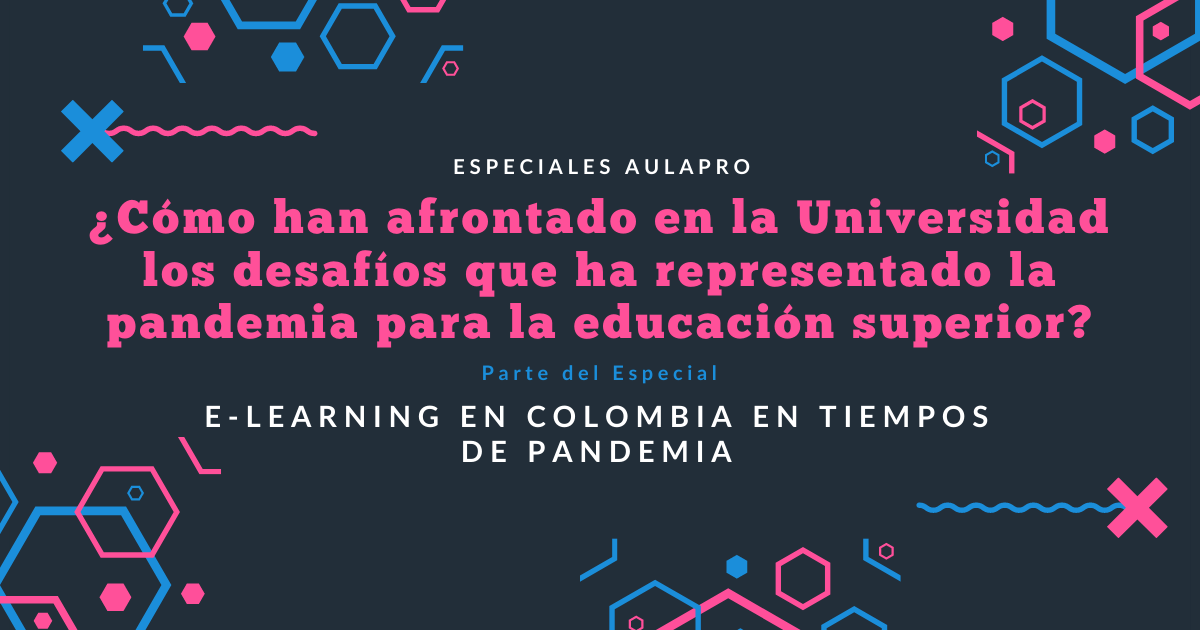The Free University had spent several years in a staggered process of introducing online education in the core of the institution, through its e-learning Project. This preparation allowed them to react quickly to the demands of the covid-19 crisis, to serve a teaching and student community that today is one of the most robust in the country, having a presence in several cities. Investments in software and infrastructure, allowed tens of thousands of students to connect to the technological platforms provided by the University, in addition to support actions by distributing equipment for optimal access to classes for hundreds of students.
These great challenges have allowed Universidad Libre to advance in its plans within the framework of its PIDI 2015-2024, with an ambitious and strategic commitment, having the e-learning offer as one of its pillars and priorities in the short term.
AULAPRO SPECIAL ON E-LEARNING IN COLOMBIA:
En AulaPro We invited a group of Colombian universities to tell us about their reactions, actions, perspectives and challenges that they were facing due to the "new normality" derived from the pandemic, by covid-19, and how online education or e-learning can play a fundamental role in the near future of higher education in Colombia.
These are the answers of CESA, Autonomous University of Colombia and the free University, whom we thank for their interest in participating.
Maximize your learning: Annual Coursera Plus with a $100 discount, for a limited time only. Click and start now!
Table of Contents
How have the universities faced the challenges that the pandemic has represented for higher education?
This process has required the implementation of an entire model of organization and technological infrastructure, in which the University had been working through the e-Learning Program for several years and which the current crisis required to enlist more quickly.
In a first stage, starting on March 20, with the announcement of the national quarantine, resources and tools began to be experimented with to facilitate administrative communication and the generation of student learning. The Microsoft Teams application was chosen as a tool to carry out synchronous meetings between teachers and students, giving continuity to the face-to-face process mediated by Information and Communication Technologies (ICT), supported by other technological tools such as access to databases. digital data from our libraries, virtual laboratories and simulators, integrating our technological infrastructure with ICT for education.
Subsequently, the second phase was passed, which consisted of training teachers, monitors, students and administrators in the aforementioned tool. Live training was given and a site was created on the University's web page for consultation of courses and support material.
The third stage began on April 13 and has had to do with the implementation of the entire model in undergraduate and postgraduate courses. This included monitoring students to find out if they had the necessary resources for their active participation in virtual classes. The need to provide computer equipment and internet connection to a certain number of students was determined.
In this way, 300 PCs and 150 modems for connectivity were delivered in Bogotá; in Cali 57 PCs and 72 modems; in Pereira 25 PCs and 50 modems; in Cartagena 15 PCs; in Cúcuta 12 tablets, two PCs and 12 internet packages; in Barranquilla 20 PCs, and in Socorro 67 PCs.
How have university students coped with learning challenges in the midst of the pandemic?
The coupling process has been successful, since from the first week of the start of ICT-mediated classes there was an average connection of 28.000 daily Libre users who used Microsoft Teams.
For Santiago Pérez, a law student, the effort of the University to help them in this process has been noted. He points out that "the University has been very diligent in training us to familiarize ourselves with the tool to develop classes and has been very attentive to solving all the problems inherent in the implementation of new technologies." He added that teachers have been recursive with the use of various tools: "There are didactic aids to make the class more enjoyable, such as Forms surveys that allow the teacher and us to measure our knowledge of a topic, it is easier to evaluate ”.
What changes in terms of technological infrastructure have you made in the institution to be able to adapt to learning at home?
The Free University has been updating all its technological infrastructure in the last four years within the framework of its Comprehensive Institutional Development Plan (PIDI). Improving its connectivity scheme, updating and centralizing its academic and administrative information systems, modernizing the entire academic suite with simulators for all areas of knowledge, access to databases and expanding the range of possibilities for our students, turning our libraries At Resource Centers for Learning and Research (CRAI), we developed a Plan for the Incorporation of ICT to all this technological infrastructure that allowed us to design a successful academic contingency plan, giving continuity to our academic and administrative processes mediated by information technologies. information and communication, being recognized by the Directorate of Education of Microsoft Colombia, as the first university in Colombia and one of the top ten universities in Latin America, with the highest use of Microsoft TEAMS, interacting with more than 49000 active users.
This effort by Libre has not only focused on equipment and connectivity for students (hardware), but also on the programs and applications (software) that they use. That is why agreements have been made with different companies that offer virtual platform services. This has earned the University the recognition of companies such as Microsoft, for the effective application of its Teams tool.
Quality education at your fingertips! Receive a $100 discount. Subscribe annually to Coursera Plus for only USD $299. Click and find out how.
How important is online education in the academic offer of the institution?
At this time it is of very high importance, we have designed a new pedagogical strategy mediated by information and communication technologies, integrating our personalized LMS to the "e-Libre" Free University, for better academic management and with the support of Microsoft TEAMS as a virtual classroom for synchronous communication and integrating another series of ICT tools that complement the process of this online education modality, providing our highly committed teachers with a training plan coordinated with our University Teacher Training School and the e-learning project so that they know and appropriate these technologies, improving pedagogical didactics in the classroom mediated by information and communication technologies.
At this time it is of very high importance because through the Microsoft Teams tool, the Universidad Libre has assumed the great challenge of offering classes, evaluations and presentation of works virtually to its more than 29.787 students in the seven sections around the country. : Bogotá, Barranquilla, Cartagena, Cali, Cúcuta, Pereira and Socorro.
With the new normality, does the institution have plans to change the offer of online education?
The e-learning project is part of our program one of the Comprehensive Institutional Development Plan (PIDI) 2015 - 2024, Strengthening and expansion of undergraduate and postgraduate programs.
We are working on this strengthening on the three fronts of our e-learning project: first, support for attendance, mediated by ICT, second, planning the creation of new 100% virtual programs, and third, our social projection and continuing education with online offers. .
The experts speak
